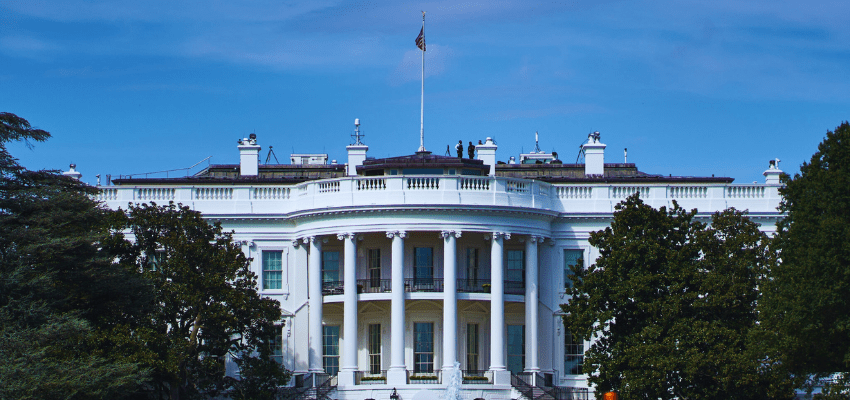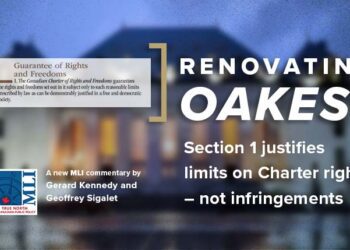This article originally appeared in Canadian Affairs.
By Ian Ching, April 2, 2025
Decades ago, Canada could boast of a world-class foreign service that could punch above its weight and affect world events. These days, Canada’s ambassador in Washington is left courting the goodwill of Capitol Hill interns with pizzas and friendship bracelets.
Despite the friction created by President Donald Trump’s tariff threats, Canada must not now shrink away from the United States. Rather, it should pursue deeper and more consistent engagement with Washington.
Since Trump’s inauguration, numerous Canadian industry and government representatives — including premiers, cabinet ministers and MPs — have traveled to Washington to lobby and learn about what has gone wrong with our bilateral relationship.
An easy answer is to pin all blame on the man in the White House. But that ignores our own agency in this situation. There has been a conspicuous lack of such visits and diplomatic efforts in preceding years. This problem extends beyond government to include Canadian businesses, think tanks and the policy community as well.
Like any relationship, the U.S.-Canada partnership must be invested in. Canadian policymakers have taken the status quo for granted and assumed that economic and cultural ties would insulate us from political drift. They have failed to act on creeping frustrations in Washington’s halls of power that were apparent even before Trump was re-elected.
And we have long failed to understand American priorities. For example, in his first week in office in 2021, then president Joe Biden canceled the Keystone XL pipeline. That decision shocked the Alberta energy sector and highlighted that Washington is not automatically attuned to Canada’s interests. Canada’s energy sector learned a hard lesson at the time.
We cannot afford to take this approach any longer. If we do not advocate for ourselves, no one else will do it for us.
To start, we need to develop more sophisticated, interpersonal methods of understanding U.S. interests. Too often, it seems even Canadian political leaders form their views of U.S. politics through TV news, social media and pop culture. Far too many Canadians seem unaware that real influence is cultivated off-camera.
Behind the dramatic congressional hearings and fiery press conferences, there are quieter, more thoughtful channels for developing ties. A broad community of think tanks, academic institutions and businesses help to keep policymakers well-informed and to broker decision-making in Washington.
Currently, though, there are few independent organizations in Washington dedicated to researching and informing lawmakers about Canada. Groups such as the Center for North American Prosperity and Security — with which I am affiliated — is one such organization.
Canada’s absence from these informal but essential spaces has led to lost opportunities to understand American priorities.
Unlike America’s other major foreign relationships, Canada is not traditionally a concern of the White House. In fact, one State Department official once told me that Canada occupies just five per cent of her office’s North America portfolio.
Instead, the Canada-U.S. bilateral relationship is primarily a concern for Congress and state-level interests. The numbers paint a picture as to why: Canada is the number one export destination for 36 U.S. states, and our annual, $1-trillion trade relationship makes us each other’s largest economic partners. These numbers underscore the foundation of this relationship as a state-to-province and people-to-people association.
Given the importance of the United States to Canada’s prosperity and security, Canada should have the most extensive and sophisticated network in Washington. The Canadian Embassy and its diplomatic work have their official place and purpose. But the government alone is insufficient to advocate for the full scope of Canada’s national interests.
In a city such as Washington, disputes can often be detected on the ground long before they are aired in a public forum. Canada needs to invest in international relationships on the ground to start carrying some weight in Washington.
Ian Ching is a Canadian master’s student of International Relations with the Canada Studies Center at Johns Hopkins’ School of Advanced International Studies (SAIS) in Washington, D.C. He is a contributor for the Center for North American Prosperity and Security, a project of the Macdonald-Laurier Institute.
The author of this piece has worked independently and is solely responsible for the views presented here. The opinions are not necessarily those of the Macdonald-Laurier Institute, its directors or supporters. The Macdonald-Laurier Institute is non-partisan and neither endorses nor supports candidates or political parties. We encourage our senior fellows to comment on public policy issues, including during election campaigns, but the publication of such expert commentary should not be confused with the institute taking a position for or against any party or candidate.






